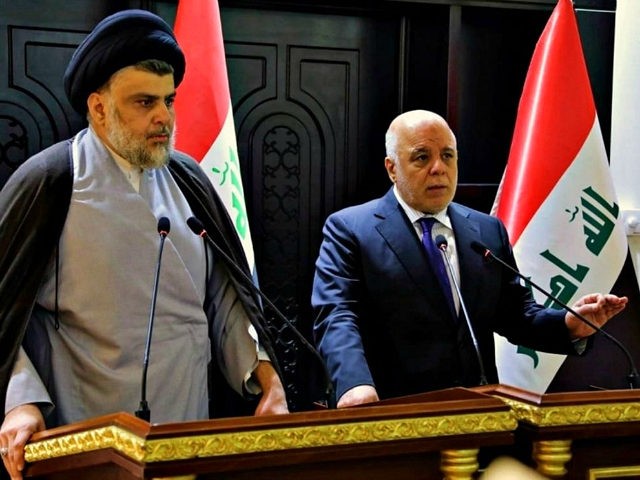Iraq’s parliament met on Monday for the first time since the elections in May, but it remains unclear which bloc of allied political interests will form the new government.
One coalition is led by incumbent Prime Minister Haider al-Abadi and is supported by the United States, while the other is led by former Prime Minister Nouri al-Maliki and supported by Iran.
The question of how closely post-Islamic State Iraq will be aligned with Iran could be settled by the winner of the power struggle between Abadi and Maliki, who are actually members of the same party, Islamic Dawa. Abadi is allied with firebrand cleric Moqtada al-Sadr, a Shiite who opposed the United States after the fall of Saddam Hussein but is now more concerned with the growing influence of Iran and its militia proxies.
Maliki is trying to get pro-Abadi lawmakers to switch sides by attacking the Abadi government’s poor performance at delivering basic civic services and its inability to finish off the Islamic State. Abadi campaigned on his ability to combat ISIS, which rose to power and threatened Baghdad under Maliki’s administration. The coalition of parties supporting Abadi calls itself “Nasr,” which means “victory.”
Unfortunately, the Islamic State has been making a comeback in 2018 with a string of small-scale terrorist attacks, even though its small amount of remaining Iraqi territory is supposedly encircled by government troops and cut off. Dozens of people have been killed by ISIS attacks over the summer, including government officials and tribal elders.
Abadi’s coalition looked a bit stronger than Maliki’s as the parliamentary session began, but the Kurds are a major wild card. Lawmakers from the Kurdish parties resent Abadi’s use of force to crush the Kurdish independence referendum, but it burnished his credentials with many other Iraqis, who saw it as a display of strength from an often indecisive leader. The Kurds may look back with more affection on Maliki’s calls for the federal government to do more to help the Kurdistan region.
Kurdish lawmakers are well aware of their delicate position in the intense rivalry between the Abadi and Maliki blocs. Kurdish politicians spent the weekend entertaining bids from both coalitions. Patriotic Union of Kurdistan (PUK) party leader Mala Bakhtiyar indicated on Sunday that both the PUK and the Kurdistan Democratic Party (KDP) would join the bloc that most convincingly supports the Kurdish National Project.
The first session of the new Iraqi parliament was delayed by vote recounts and allegations of corruption in the May election. It now has 30 days to elect the next president of Iraq, who will in turn name the next prime minister. As the first session went into recess on Monday, both Abadi and Maliki claimed they had forged alliances that would give them the majority vote.

COMMENTS
Please let us know if you're having issues with commenting.